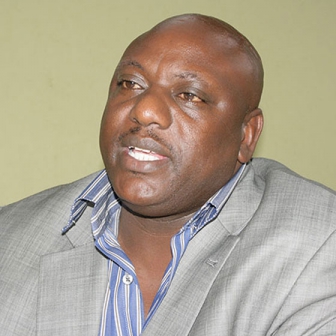
Former Mungiki leader Ndura Waruinge claims he was offered Sh40 million by the International Criminal Court (ICC) to testify against President Uhuru Kenyatta.
The offer was made around 2009 as the ICC built cases against six people accused of bearing the greatest responsibility for the electoral violence triggered by a disputed presidential poll results pitting incumbent Mwai Kibaki against challenger Raila Odinga in 2007.
“I was offered Sh40 million to be on the side of the prosecution,” said Ndura, the former coordinator of the outlawed Mungiki sect who has since turned preacher.
Along with the financial pledge, he was told to choose a European country of his choice where he was to live with his family.
Ndura, now head of the Miracle Valley International Church in Kenya, claims a prominent local lawyer, was the link between him and ICC.
According to Ndura, the said lawyer invited him to a meeting where he was briefed on what was required of him. Ndura allegedly learnt that the prosecution team desperately wanted him after concerns emerged over statements taken from another witness initially thought to be prime, but whose testimony had glaring inconsistencies.
The witness was a high ranking Mungiki official and was allegedly flown to a South African country where he gave his side of the story.
Ndura thinks it was from the collapse of the said witness that the ICC “thought I would be a better alternative. They knew I understood Mungiki operations very well despite having left the sect,” claims Ndura, adding that he was persuaded to become a defence witness in exchange for the Sh40 million and a good life abroad.
Ndura claims intelligence agents from a powerful western nation took him to their embassy in Nairobi several times where “they wanted to know more about me, Mungiki, what I knew about the violence and my understanding of the ICC.”
But after a thorough soul searching, the Saul-turn-Paul preacher declined the offer. A few days later, Ndura was attacked at his Ngong home where the raiders beat him up before taking off with some electronic goods.
“The furious attackers demanded to know why I had refused to be on their side,” claims Ndura who then became a defence witness for Uhuru, allegedly writing a statement that exonerated him from the Naivasha and Nakuru violence where he had been accused of funding violence.
The statement was allegedly recorded in Kampala, Uganda.
“I paid for my own air ticket, catered for food and accommodation while meeting Uhuru’s lawyer to write the statement in which I was categorical that Uhuru never sanctioned retaliatory attacks, but facilitated the provision of humanitarian assistance.”
The Nairobian sent an email regarding Ndura’s claims to the ICC, but the Hague based court had not responded by the time of going to the press.
In previous interviews, Ndura denied being an ICC witness arguing that it was the media which misrepresented and distorted his words.
In 2015, Prosecutor Fatou Bensouda linked Ndura to the violence, and claimed that he had played a role in the violence after he was allegedly persuaded by former Juja MP, the late George Thuo, to involve Mungiki youth to stage attacks in Naivasha and Nakuru.
“The accused (Uhuru) dispatched additional intermediaries to approach Mungiki members. Among them was George Thuo, the PNU MP for Juja constituency and Chief Whip, who urged senior Mungiki members and Ndura Waruinge to fight on the PNU side, explaining that high government officials had endorsed the use of the Mungiki,” stated Bensouda in her submissions to Trial Chamber V(B) on January 19, 2015.
“I never had the intention of supporting the prosecution, instead I meant I will side with Uhuru,” Ndura defended himself.
“I cannot sell my country for monetary gain. I come from a family of freedom fighters who fought white persons humiliating Africans,” he says.
Ndura disclosed that most of the Mungiki adherents who offered to testify against Uhuru were desperate, only looking for an escape route as they were being hunted down by State security agents.
“I knew I number of them. Their decision to work with ICC was not genuine,” revealed Ndura, “but rather a desire to run away from the police. Remember there was a promise of a better, secure life in Europe.”
 The Standard Group Plc is a multi-media organization with investments in media
platforms spanning newspaper print
operations, television, radio broadcasting, digital and online services. The
Standard Group is recognized as a
leading multi-media house in Kenya with a key influence in matters of national and
international interest.
The Standard Group Plc is a multi-media organization with investments in media
platforms spanning newspaper print
operations, television, radio broadcasting, digital and online services. The
Standard Group is recognized as a
leading multi-media house in Kenya with a key influence in matters of national and
international interest.



